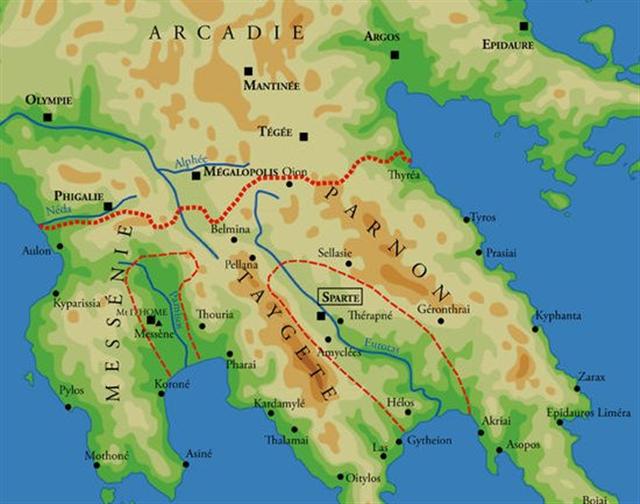|
2. The myth keepers, those who kept and transmitted myths to the new generations, certainly improved their stories when it was possible and when it did not disturb the old patterns. When the Thunder Twins were told to have their 'nest' in Sparta it probably was due partly to its geography:  Between the pair of mountain 'legs' runs a river (or should we not rather say the River) like Nile dividing the land in an eastern and a western part. "One etymology derives the word Eurōtas from the ancient Greek eurōs, 'mold'. The adjective, eurōeis, 'moldy', is genuinely ancient, used as an epithet of Hades in Homer. It is, however in the Ionic dialect." (Wikipedia) Comparing with the twins in the sky the resemblance is striking because the orientation is neither vertical nor horizontal:  Taygete is a female name (such are suitable for mountains in the west) and we remember her as one of the Pleiades sisters: ... According to mythology, Alcyone and Celaeno were both seduced by Poseidon. Maia, the eldest and most beautiful of the sisters, was seduced by Zeus and gave birth to Hermes; she later became foster-mother to Arcas, son of Zeus and Callisto. Zeus also seduced two others of the Pleiades: Electra, who gave birth to Dardanus, the founder of Troy; and Taygete, who gave birth to Lacedaemon, founder of Sparta ... Myths must be accommodated in the greater picture, another necessary rule for the myth keepers. Once this laborious task has been accomplished, though, it will enable the serious students to make use of the details: "In Greek mythology, Eurotas ... was a king of Laconia, the son of Myles and grandson of Lelex, eponymous ancestor of the Leleges, the pre-Greek people residing, in the myth, in the Eurotas Valley. He had no male heir, but he did have a daughter, Sparta. Eurotas bequeathed the kingdom to her husband, Lacedaemon, the son of Taygete, after whom Mount Taygetus is named, and Zeus, according to Pausanias. Lacedaemon renamed the state after his wife ... Pausanias says: It was Eurotas who channelled away the marsh-water from the plains by cutting through to the sea, and when the land was drained he called the river which was left running there the Eurotas. The 'cutting through' is seen by Pausanias' translator and commentator, Peter Levy, S.J., as an explanation of Eurotas (or Vrodamas) Canyon, a ravine north of Skala where the river has cut through the foothills of Taygetus after changing direction to the west of the valley." (Wikipedia) Here I read 'cutting through' as possibly alluding to how Gemini once broke through the winter cloth. |